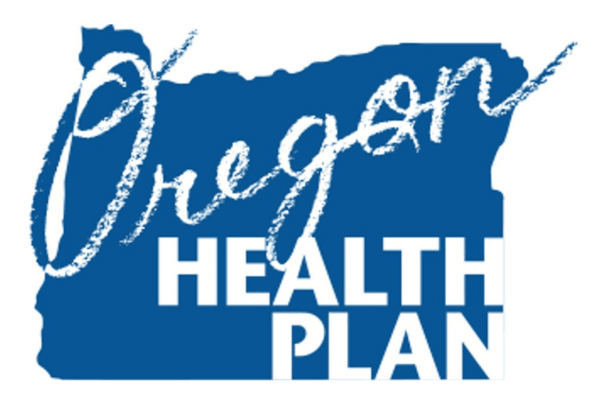Transforming care & outcomes through meaningful metrics

Three 2024 projects illustrate how CORE helps its partners identify, select, and innovate measurement and incentive metrics.
- Health and social service organizations working to transform care and outcomes while managing costs need smart metrics to measure and incentivize their progress.
- Selecting and developing meaningful and realistic measurements in complex physical, behavioral, and social service environments poses a variety of challenges.
- CORE's work with CareOregon, Health Share of Oregon, and Washington's Community Care Hubs illustrates how plans, providers, and community-based programs can select, customize and innovate measurement approaches that drive lasting change.
As health and social service organizations pursue new strategies to improve client experiences and outcomes while lowering costs, they need effective ways to measure and incentivize progress across their provider networks and programs. However, selecting and developing meaningful and realistic measurements in today’s complex physical, behavioral, and social service environments can be challenging.
The Center for Outcomes Research and Education’s (CORE) work in this area demonstrates how healthcare plans, providers, and community-based programs can develop new approaches to measurement that drive lasting change.
Below are three examples of how our team at CORE is helping our partners select, customize, and innovate metrics tailored to their communities’ needs.
Want to learn more? Get in touch!
Transforming behavioral healthcare metrics with CareOregon
Various metrics exist to measure and incentivize physical healthcare quality; however, there are far fewer well-established options in behavioral healthcare. Recognizing this gap, CareOregon, a health plan that serves more than 500,000 Oregonians through the Oregon Health Plan (Medicaid), engaged CORE to develop a set of behavioral health incentive metrics for its Quality Improvement Incentive Program (QIIP). The program rewards certain specialty behavioral health providers for demonstrating care quality.
Through QIIP, CareOregon’s ambitious goals include:
- Driving meaningful and lasting change using data, technical support, community engagement, and financial incentives
- Monitoring and incentivizing clinical and operational improvements
- Building and supporting a community of quality improvement
- Responding to pressing community challenges like substance use disorder (SUD), mental health conditions, and a shortage of behavioral healthcare workers.
Meeting these goals requires meaningful metrics that align with community needs without overly burdening behavioral health providers. Given existing workforce shortages and other challenges faced by providers, their input was vital to this effort.
Our team gathered input from providers across CareOregon’s urban and rural service areas to inform the program’s incentive metrics. We also researched existing metrics and helped convene experts and stakeholders to shape a set of behavioral health metrics for QIIP designed to incentivize quality in key areas. For example, access to timely mental health appointments, timely follow-up care after acute mental health or SUD events, and connections to primary care for members receiving SUD treatment.
These and other QIIP measures set for implementation in 2025 represent a significant step toward ensuring that behavioral health services meet the needs of CareOregon’s Medicaid members.
Evaluating a new model of care coordination in Washington State
Washington State’s nine Community Care Hubs (CCHs) work to improve community health by coordinating social and healthcare services and connecting people with resources like housing, food assistance, and childcare. Yet as a new model of care serving various regions of the state, the CCHs lacked a unified approach to measurement. To address this, the Washington Department of Health convened a workgroup of the CCHs, CORE, and other experts to create a framework for measuring the Hubs’ progress, impacts, and value to the social care ecosystem.
With support from the CORE team and our partners at Uncommon Solutions, the workgroup built a new and unified set of metrics for the CCH program. Together, we reviewed measure concepts developed by the CCHs and the measures’ intent, explored data sources and measurement feasibility, and developed detailed specifications to enable consistent measurement and reporting across the Hubs. The result was a set of detailed measurement instructions for 33 strategic measures that evaluate CCH contributions in areas including:
- Community voice and engagement
- Sustainability and business operations
- Care coordination operations and reporting
- Network management and capacity building
- Community-based workforce
With these shared metrics, the CCHs are better equipped to demonstrate their value, drive improvements, and enhance their impact as they collect data and refine their practices.
Informing interventions for Health Share’s high-risk Medicaid members
Oregon’s largest Medicaid Care Coordination Organization (CCO), Health Share of Oregon, is investing in a range of interventions for members diagnosed with opioid or stimulant use disorder, unintentional substance-related overdose, or psychotic disorders. These individuals often receive care in emergency departments or other high-cost acute care settings that are ill-equipped to manage these patients’ complex array of clinical, social, and engagement needs. In fact, research supported by CORE found that this group made up just 8% of Health Share’s adult membership but accounted for approximately 38% of Health Share’s adult medical inpatient admissions in 2023.
To inform care and interventions for this population, Health Share is partnering with CORE to help develop monitoring and evaluation metrics that track member characteristics, healthcare utilization patterns, and SUD treatment rates. These metrics will provide a foundation for monitoring the impact of targeted interventions. One example is inpatient addiction consultation services and emergency department workflows to support Medication for Opioid Use Disorder (MOUD) prescribing and SUD peer specialist support.
These efforts aim to help Health Share and its partners understand the impacts of these targeted interventions on healthcare costs and patient outcomes.
Driving lasting change through smarter metrics
CORE is proud to partner with these organizations and others at the forefront of improving health and community-based care and services. From behavioral health metrics that reflect community priorities to frameworks for innovative care coordination, our work underscores the power of meaningful data to drive transformation.
Related news and resources from CORE's blog
Measuring impact: designing an evaluation for Oregon's 1115(a) Medicaid wavier
Data-driven insights for a healthier Oregon: The Health Share analytics project


